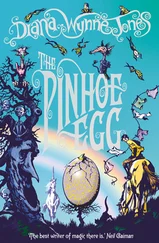A woman’s voice said something from inside, and Brunetti ignored it. The door was pulled open by Lucrezia Lembo, who seemed not at all surprised to see him there. ‘You’ve come for me, then?’ she asked, sounding far more lucid than she had the last time he spoke to her.
‘I’ve come to talk to you, Signora,’ he declared; a statement, not a request.
Without protest, she turned away, leaving the door open, and he stepped into the courtyard. She led him back towards the entrance, then upstairs, but this time to the kitchen, a room with windows on the canal; like the other room, this one was spotlessly clean. Brunetti stopped just inside the door.
She could have been a different person. Her hair was clean, and she was dressed in a very conservative skirt, sweater, and light woollen jacket. Her low pumps were the sort, and of the same high quality, Paola wore when she went to teach. She was no longer fat, only robust.
She went to the counter in front of the row of windows that looked across the canal to the shuttered windows of the building opposite. She turned and leaned back against
the counter. ‘Sit if you please, Signore.’
Brunetti approached the table, hearing the noise his shoes made on the marble floor. She took his umbrella and placed it in the sink behind her. Because it would give her the advantage, Brunetti pulled out a chair and lowered himself into it.
‘Have you come to arrest me?’ she asked.
‘For what, Signora?’
It looked as though she had had a good night’s sleep. He reminded himself that she might just as easily have found the right combination of alcohol or drugs, but it did not seem that way to him.
‘To the best of my knowledge, there is no reason to arrest you, Signora.’ He saw her eyes widen, and then her face relaxed even more. ‘Nor is it my desire, Signora.’
‘Then why are you here?’
‘To talk about your father.’
‘Father?’ She lowered her head and shook it, and when she raised it again, she was smiling at him, as if at his innocence in saying such a thing.
‘Ludovico Lembo, once Fadalti, also known as the King of Copper,’ Brunetti said.
‘What do you want to know about him, Signore?’
‘Is he the father of Ana Cavanalla’s son?’
‘Davide?’
‘Yes.’
‘Yes, he is. Or was.’
‘Have you been paying for Davide’s upkeep?’
‘Yes.’
‘Is the house in San Polo where he lived yours?’
‘Yes, it is. It was left to me by the same man.’
‘Ludovico Lembo?’
‘Once called Fadalti. Yes.’
‘And Davide had the usufrutto of that house?’
‘Until his death. Yes.’
All of these things, Brunetti knew, save for the first, were matters of public record. ‘Was Ana Cavanella blackmailing you, Signora?’
‘What?’ she asked with honest surprise.
‘Was she blackmailing you?’
‘About what?’
‘The name of Davide’s father?’
‘Why should she do that?’ Lucrezia asked.
‘To keep other people – your mother, perhaps – from finding out.’
This time she shook her head, as if he had told her something too ridiculous to believe but was afraid of hurting his feelings if she laughed.
‘Finding out what?’
‘I don’t know,’ Brunetti said honestly. With this family, no possibility could be excluded. Then, not admitting to himself that he was irritated by her air of knowing something he did not, he said, ‘I know your mother learned about her pregnancy.’
She turned away, but it was only to open a cabinet behind her and lift down a glass, then another one. She turned on the water in the sink and filled them both, placed one in front of him and drank half of her own. She kept her glass in her hands; Brunetti pulled his closer to him but did not drink.
‘Tell me your name again, please. I’m afraid I wasn’t myself the last time you were here.’
‘Brunetti,’ he said, relieved to learn that she remembered the other visit.
‘And the name of your rather excitable colleague?’ she asked.
‘Griffoni.’
‘Ah. Yes.’ And then, ‘Signor Brunetti, I think you and I have some of the same information. But it means different things to us.’ She sipped at her water.
When Brunetti judged that she was not going to say anything else, he said, ‘The payments to her, from your account. If they are not blackmail, what are they?’
‘Just what you said, money for his upkeep. Enough to let the two of them live.’
‘And the use of the house they were living in?’
‘The same. The attempt on the part of a very decent man to see that his son did not live in misery.’
‘You mean your father?’
‘Ludovico Lembo, formerly Fadalti.’
Her tone told him. ‘Who is or who is not your father?’ Brunetti asked.
‘Who is not my father, nor my sister Lavinia’s father, but was the father of his companion’s daughter Ludovica and of Davide, Ana Cavanella’s son.’
‘You say that very lightly, Signora,’ Brunetti risked observing.
‘You’re sadly mistaken, Signor Brunetti,’ she said. ‘I say it with more pain than you will ever be able to understand.’ Another sip of water. ‘But we were raised in a very hard school, my sister and I, and we are not much given to lamentation or complaint.’
‘Raised by whom?’
‘By my mother and her cousin.’
‘Sister Maria Rosaria Lembo-Malfa?’ Brunetti inquired, unable to stop himself from showing off.
‘Exactly. She and my mother. Cousins united in their service and devotion to Christ. Except . . .’
‘Except what, Signora?’
‘Except that my mother’s devotion was perhaps not characterized by the same purity as was her cousin’s.’
Brunetti was suddenly tired of her and her posturing and her speaking in allusion and riddles. He almost preferred her drunken excesses. ‘Could you speak more clearly, Signora? It would save us both time and effort.’
He saw her surprise, but then her amusement. ‘How refreshing, to be spoken to directly. I thank you for it, Signore. I’ve seen very little of it in my life.’
He believed her. ‘Then tell me, but don’t tell it slant.’
‘My mother did not like my father, and my father did not like my mother. That is, the man I’ve spent my life calling my father did not like my mother, and my mother did not like the man I’ve spent my life calling my father.’
‘But he married her?’
‘He married her because she was pregnant and asked him to marry her.’
‘Pregnant by him or some other man?’
‘Good heavens: a man like my father would never have had sex before marriage – not with the woman he hoped to marry. It was not done: not if you’re an upstart engineer and the girl is the daughter of your boss, and the company is one of the biggest in the country.’
‘So he married her to get the business?’
‘My father was a businessman before he was anything else. He loved it, loved making things work and loved making money from that.’
‘You automatically call him your father,’ Brunetti pointed out.
‘I loved him. He was a good man and very kind to the two of us. I’ve never met our real father – at least not knowingly – and so he was the man I loved as my father. Lavinia, too.’
‘She wasn’t his daughter, either?’
‘Haven’t I just said that?’ she asked and turned to fill her glass.
‘Of course, of course,’ Brunetti assured her when she was again facing him.
‘But were they never . . .’ he didn’t know how to say it, not while speaking to a lady. ‘Were they never really husband and wife?’
‘I have no idea of that, and I don’t want to know,’ she said heatedly, speaking quickly, the faster to have it said. ‘They always had separate rooms and separate lives. And my mother went off to see her cousin in the convent every month, didn’t she?’ she asked, leaving Brunetti to make of that whatever he pleased.
Читать дальше












